Pancha bhoodhath adangida paavanan
Manjurung gugai maa virupaakshiyir
Panju thangu padhathudan naNNinan
Senjol inba ramNa mai desikan
Word meaning
Pancha bootham = five elements; adangida = not contained by; paavanam = purifier, purify; manju = clouds, mist, snow, dew; gugai = cave; panju = cotton; padhathinan = feet like (cotton); desikan = one who knows the area, direction, guide.
Meaning
Ramana, he is the pure one that couldn’t be contained by the five elements. He reached, on his cotton-soft feet, the cave surrounded by pleasant, dew-laden clouds. Ramana, the one who knows the way, the form of the Truth, causes perfect bliss (in me).
SV describes Bhagavan as ‘the pure one not contained by the elements’. He also touches on a similar sentiment in ‘kummi paattu’ verse 5 and 6 where he expresses Bhagavan’s nature as one that has transcended the limitations set for mere mortals even though He is pervasive in all the elements. This description finds a parallel in Saint Manickavasagar’s Sivapuranam, where he extols Shiva as ‘viNN niraindhum maNN niraindhum mikkai …’ where ‘viNN’ is space or sky and ‘maNN’ is literally soil or sand but refers to the earth, ‘mikkaai’ is pervading. Grant Duff, had a similar experience when he first saw Bhagavan, “There it did not take me long to see that I was in direct contact with one who has passed beyond the boundaries of the senses and was indeed already merged in the Absolute of his true Self”
‘Paavanan’ is someone who purifier, usually of sins. Lord Rama is worshipped as ‘patita pavana’ patita meaning ‘the fallen’ usually refers to those who fallen from their dharma.
SV presents a beautiful picture of Virupaksha Cave in the morning, with dew-laden pleasant clouds hovering over Arunachala, reminiscent of the Kailasha peak. In fact, ‘manju’ meaning ‘mist’ (pani in Tamil), is one of the names of Parvati, daughter of Parvati Raja (King of Mountains). Bhagavan’s feet are described as ‘soft like cotton’ in this verse. Bhagavan never wore any kind of footwear (sanyasis are allowed to wear wooden sandals while walking), even in the searing heat of the summer months in Tiruvannamalai. He would walk in his usual, slow pace while advising those who walked with him to find a shaded spot. We mentioned how Bhagavan’s feet became soft in an earlier verse in an incident with his school mate Rangan.
‘Senjol’ is split as ‘sen chol’ which expands ro ‘semmayana sol’. ‘semmai’ can mean to improve or perfect (something). Words from Bhagavan (which, devotees say, can be counted on the fingers of one’s hand in a day), have the power to make us perfect. Hence it is called ‘sen chol’.
‘Desikan’ : while it has become a family name or surname over time, means someone who knows the territory or direction. Kanchi Mahan in Deivathin Kural Part 6 explains in detail the meaning of the word desikan which has its roots in the Sanskrit sound ‘dich’ from which came ‘disha’ meaning direction and desikan meaning one who knows the direction in an area. Since Truth is a land we mortal have no familiarity with, we seek the help of those who have gone there before to guide us, and who better than Bhagavan to lead us from this samsara?
Manjurung gugai maa virupaakshiyir
Panju thangu padhathudan naNNinan
Senjol inba ramNa mai desikan
Word meaning
Pancha bootham = five elements; adangida = not contained by; paavanam = purifier, purify; manju = clouds, mist, snow, dew; gugai = cave; panju = cotton; padhathinan = feet like (cotton); desikan = one who knows the area, direction, guide.
Meaning
Ramana, he is the pure one that couldn’t be contained by the five elements. He reached, on his cotton-soft feet, the cave surrounded by pleasant, dew-laden clouds. Ramana, the one who knows the way, the form of the Truth, causes perfect bliss (in me).
SV describes Bhagavan as ‘the pure one not contained by the elements’. He also touches on a similar sentiment in ‘kummi paattu’ verse 5 and 6 where he expresses Bhagavan’s nature as one that has transcended the limitations set for mere mortals even though He is pervasive in all the elements. This description finds a parallel in Saint Manickavasagar’s Sivapuranam, where he extols Shiva as ‘viNN niraindhum maNN niraindhum mikkai …’ where ‘viNN’ is space or sky and ‘maNN’ is literally soil or sand but refers to the earth, ‘mikkaai’ is pervading. Grant Duff, had a similar experience when he first saw Bhagavan, “There it did not take me long to see that I was in direct contact with one who has passed beyond the boundaries of the senses and was indeed already merged in the Absolute of his true Self”
‘Paavanan’ is someone who purifier, usually of sins. Lord Rama is worshipped as ‘patita pavana’ patita meaning ‘the fallen’ usually refers to those who fallen from their dharma.
SV presents a beautiful picture of Virupaksha Cave in the morning, with dew-laden pleasant clouds hovering over Arunachala, reminiscent of the Kailasha peak. In fact, ‘manju’ meaning ‘mist’ (pani in Tamil), is one of the names of Parvati, daughter of Parvati Raja (King of Mountains). Bhagavan’s feet are described as ‘soft like cotton’ in this verse. Bhagavan never wore any kind of footwear (sanyasis are allowed to wear wooden sandals while walking), even in the searing heat of the summer months in Tiruvannamalai. He would walk in his usual, slow pace while advising those who walked with him to find a shaded spot. We mentioned how Bhagavan’s feet became soft in an earlier verse in an incident with his school mate Rangan.
‘Senjol’ is split as ‘sen chol’ which expands ro ‘semmayana sol’. ‘semmai’ can mean to improve or perfect (something). Words from Bhagavan (which, devotees say, can be counted on the fingers of one’s hand in a day), have the power to make us perfect. Hence it is called ‘sen chol’.
‘Desikan’ : while it has become a family name or surname over time, means someone who knows the territory or direction. Kanchi Mahan in Deivathin Kural Part 6 explains in detail the meaning of the word desikan which has its roots in the Sanskrit sound ‘dich’ from which came ‘disha’ meaning direction and desikan meaning one who knows the direction in an area. Since Truth is a land we mortal have no familiarity with, we seek the help of those who have gone there before to guide us, and who better than Bhagavan to lead us from this samsara?

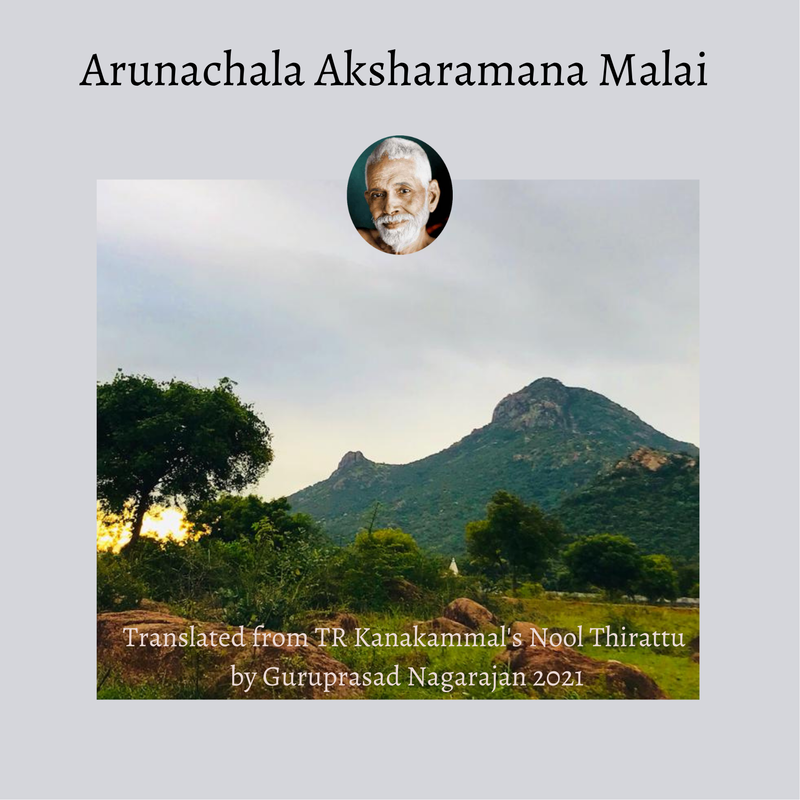
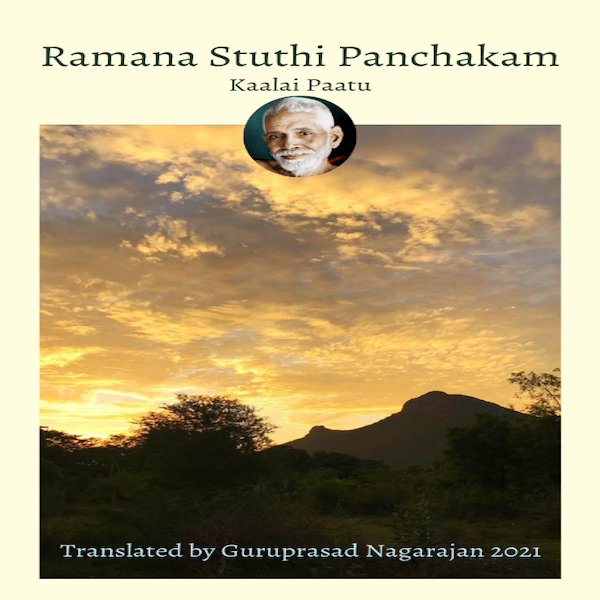
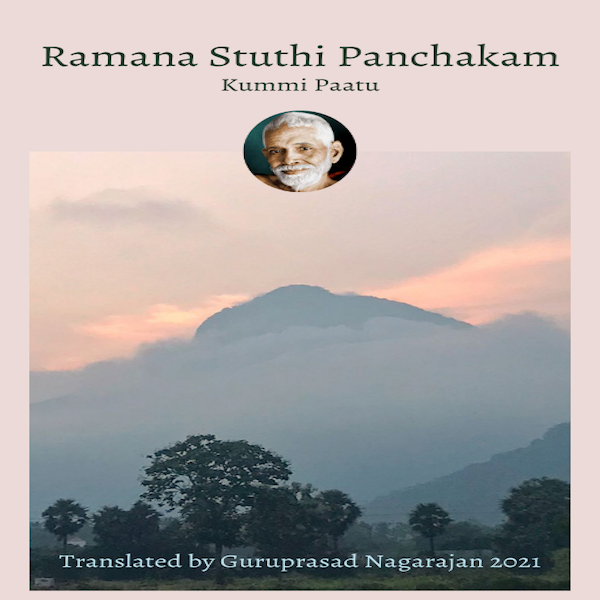
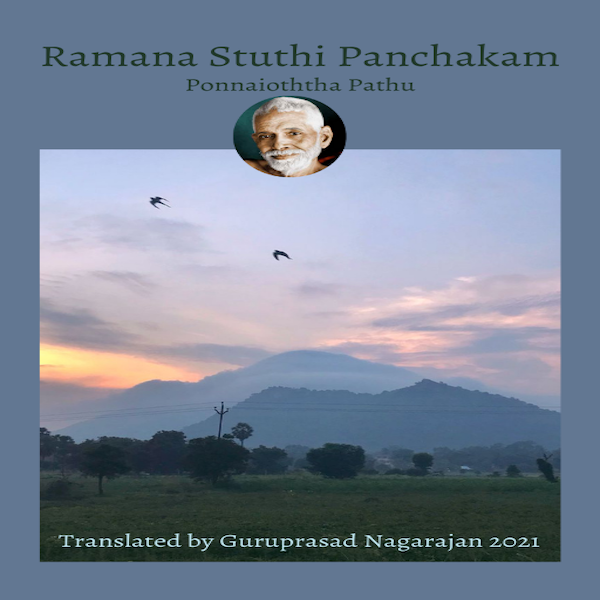
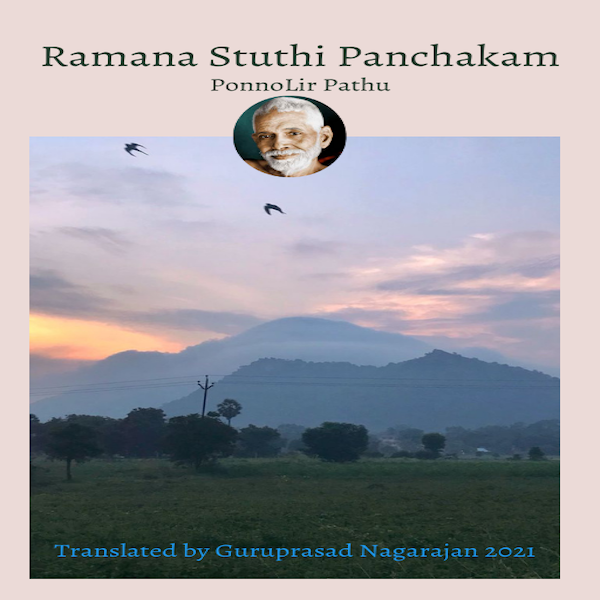
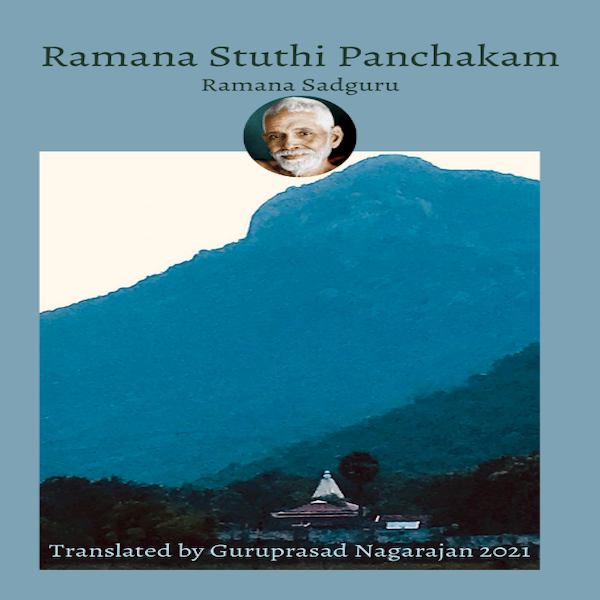
 RSS Feed
RSS Feed